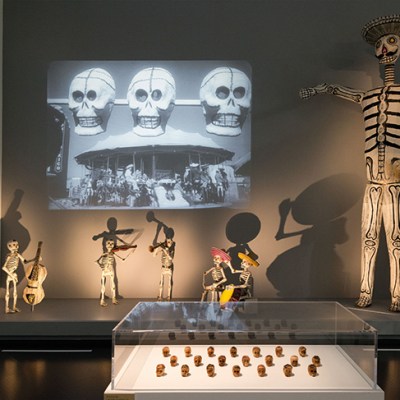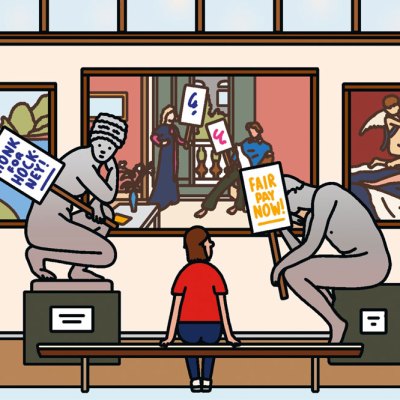While Christie’s was still feeling the effects of last week’s cyber-attack, its New York sales continued, achieving reassuring results. While the 21st-century auction on Tuesday evening achieved a muted $115m, the 20th-century sale on Thursday fetched a solid $413.3m, squarely in the middle of the pre-sale estimates and with a 95 per cent sell-through rate by lot. (Brice Marden’s Event [2004–07] was among four lots withdrawn before the sale.) On 9 May, what the auction house described as a ‘technology security issue’ led it to suspend its website; it has only just been restored. In its place, Christie’s created a temporary website to host sales catalogues and live online bidding . There have been reports that clients were able to see the accounts of other clients when they logged in. The auction house has been advised not to provide further details about the security breach.
The Iranian film-maker Mohammad Rasoulof has been smuggled out of Iran after being sentenced to seven-years in prison. He is accused of making his latest film without obtaining a licence and of allowing actresses in the film to not wear their hijab in the correct manner. The film in question, The Seed of the Sacred Fig, will have its first screening at Cannes next Friday. This is not the director’s first run-in with the Iran authorities. In 2017 his passport was revoked and he was in prison from July 2022 to February 2023. Rasoulof is now in Germany. In order to escape, he cut himself off from all methods of electronic communication and crossed the border on foot. He told the Guardian that it was ‘a several-hour-long, exhausting and extremely dangerous walk’ that he ‘had to do with a guide’. He is expecting to attend the premiere of The Seed of the Sacred Fig in person. However, he has also said that he expects to return to Iran ‘quite soon’. Several of the actors and crew who worked on the film have been banned from leaving Iran.
Forty-nine workers at the Vatican Museums have initiated legal proceedings, alleging poor working conditions. The staff complaints include insufficient safety provisions, including overcrowded conditions for staff and visitors, and the absence of a furlough scheme, which meant that staff were made to repay salary earned during lockdown in 2020. It is the first class-action of its kind in the Holy See, and is expected to initiate a conciliation process. If that process fails, the case may head to a tribunal – but the Associated Press reports that if the labour office refuses to hear the case, the employees may be left with no further recourse. The 49 people party to the legal action represent seven per cent of the Vatican Museums’ workforce. The Vatican does not permit its staff to unionise.
Lebohang Kganye is the winner of this year’s Deutsche Börse Photography Foundation Prize. The £30,000 award, held in collaboration with the Photographers’ Gallery in London, rewards the ‘most significant contribution to international contemporary photography over the past 12 months’. The South African artist was nominated for the exhibition ‘Haufi nyana? I’ve come to take you home’ at Foam in Amsterdam last spring, which featured life-size cut-outs of figures taken from family photo albums. Also this week, the Taiwanese artist and film-maker Chia-Wei Hsu was announced as the winner of the Eye Art & Film Prize, which comprises a €30,000 cash award and a joint exhibition at the Eye Filmmuseum in Amsterdam. Hsu, who creates complex video installations on geopolitical themes, was praised by the jury’s chair for his ‘highly original fusion of archaeology and technology’. Previous winners include Garrett Bradley, Wang Bing and Ben Rivers.



